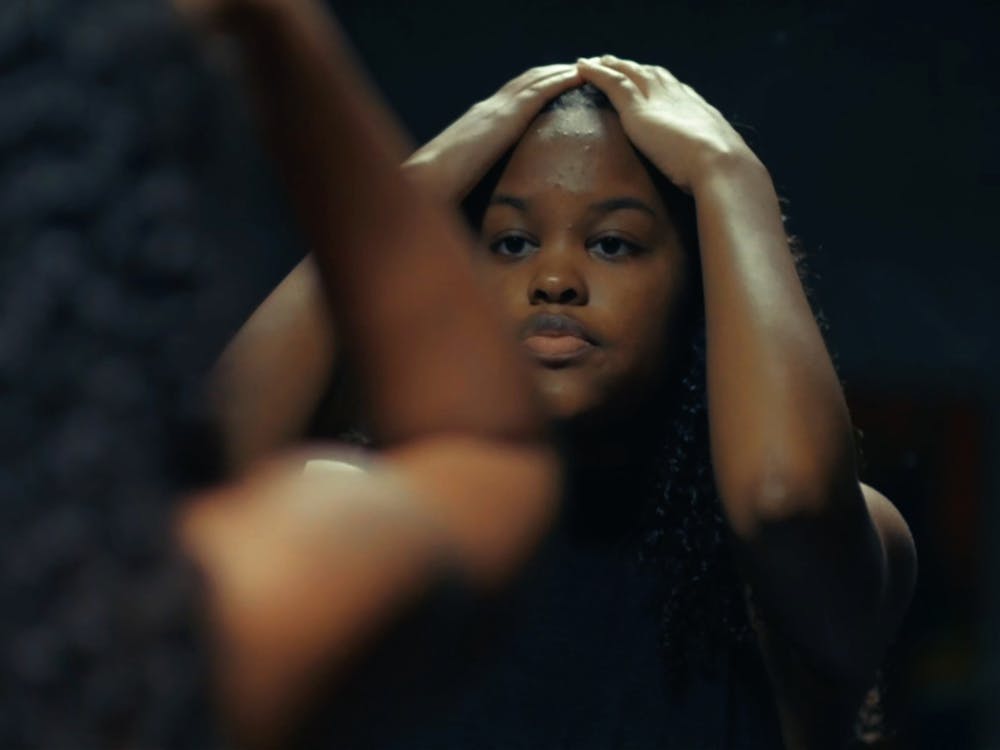Durham’s Hayti Heritage Film Festival is one of the nation’s longest-running Black film festivals. This year, the lineup includes the breakout work of Duke alumna Sade Abiodun, Trinity ‘18.
Her short film “Godspeed” premiered at the San Diego Black Film Festival earlier this month and has been selected for film festivals across the country. But if you ask Abiodun if she considers herself a filmmaker, it might take her a moment to say yes.
“I always was convinced that I couldn't be an artistic person. I grew up being ‘the smart girl who likes science,’ so I thought that that's where I had to fall,” she said.
Abiodun studied neuroscience as an undergraduate and has been working at Duke’s Center for Cognitive Neuroscience for the past two years. It was during the second semester of her senior year, however, that Abiodun first discovered filmmaking. After snagging a spot off the waitlist, she found herself in AMI Lecturing Fellow Steve Milligan’s cinematography class.
She had always been an avid consumer of film, but the class gave her concrete skills, knowledge and terminology that sparked an interest in the creative process. After graduation, she kept in touch with Milligan. Later, when she came up with the concept of “Godspeed,” he signed on as her director of photography.
“Godspeed” started out as a simple idea — a vivid picture that Abiodun could not get out of her mind. Listening to the song “Godspeed” by Frank Ocean, she began to imagine a story based on someone growing through distinct stages of their life.
“Even though you're in each of these individual stages, you're still the same person. You're moving through it with a certain rhythm, a certain pattern that's almost choreographed,” she explained.
With input from other creative collaborators, Abiodun realized that, in order to tell the story, she would also explore the character’s relationship with her mother and the change in their dynamic over time. Although “Godspeed” is not autobiographical, Abiodun drew from personal experience to write the script and shape the vision for the short film.
“I was in the state of flux and transition and graduating,” she said. “I was trying to figure out what came next while not forgetting where I'd come from before and where I was now.”
Throughout the filmmaking process, she approached the project as a learning experience. From writing a screenplay to casting her characters to scouting locations, she leaned on her team of collaborators who in turn offered her patience and trust. In many ways, the project was an exercise in vulnerability.
“It was a huge step out of my bubble to really try and validate myself as an artist,” Abiodun said.
As both a scientist and creative, Abiodun finds many parallels between her work in neuroscience and in film. In order to create such resonant work, both fields require intentional research and preparation prior to creating a new product. In the research process for “Godspeed,” she especially drew from the work of Black filmmakers, naming Barry Jenkins’s “Moonlight” and “If Beale Street Could Talk” as major inspirational sources.
“I really wanted to make sure that I cited depictions of Black characters that were dynamic and that weren't just about a single traumatic experience,” she explained.
Her commitment to multidimensional storytelling can be exemplified by her collaborative work style. She brought on senior Nonnie Egbuna to contribute poetry to the project and gave her actors agency in crafting their own performances.
“I wanted to find as many ways, shapes and forms that were within my power to elevate the voices of people of color, women of color in a creative way,” she said. “We have something to say, we have these dynamic stories, we have these abilities to express ourselves and to have them resonate and relate to a host of different people.”
For Abiodun, the most rewarding part of the entire experience has been seeing how audiences have connected with her work.
“The true pay off for me came in people saying that it was something that they really were moved by and that they felt something. From my neuroscience side, it was like, yes! I was able to create this emotional experience,” she said.
Abiodun is still figuring out what might come next. She plans to pursue a Ph.D., hoping to focus on neurocinematics, or the study of how film watching and visual experiences influence our emotional and perceptual states. For now, her experience with filmmaking has reinforced her desire to experiment and fulfill her creative impulses.
“I’m proud of myself for getting to do this,” she said. “I want ‘Godspeed’ to be something that encourages others to step out of their box, too, and just try something and see where it goes.”
“Godspeed” will be shown Feb. 14 at 8 p.m. at the Hayti Heritage Center. Tickets are $10.
Get The Chronicle straight to your inbox
Signup for our weekly newsletter. Cancel at any time.

